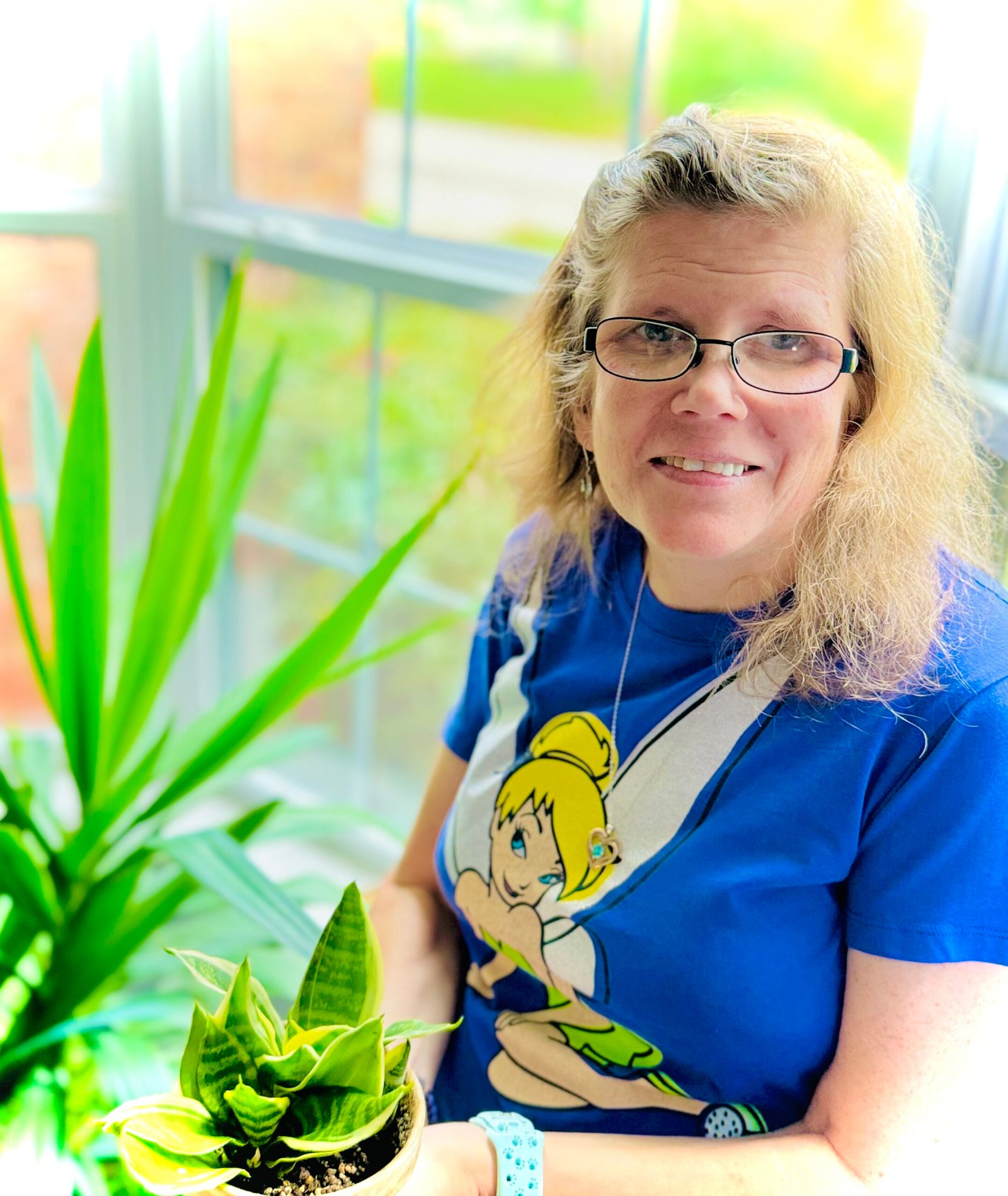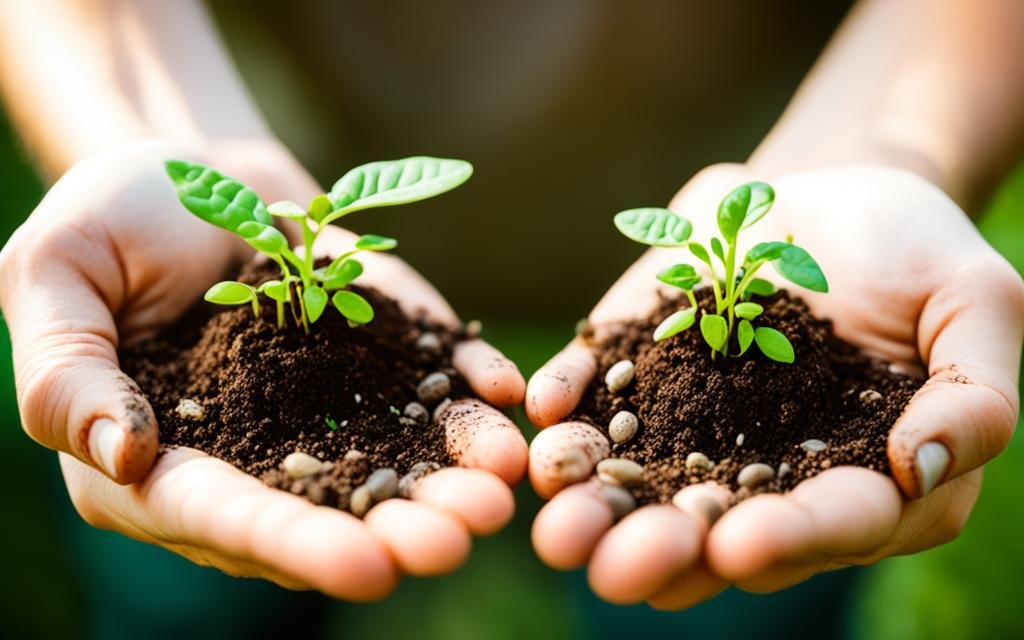Did you know gardening can be as good as a gym workout? It’s true! Activities like mowing, digging, and planting can boost your health and help with stress1. During the COVID-19 pandemic, more people started gardening to stay active and relieve stress at home1. This shows how gardening can improve mental health and help us connect with others2.
Gardening is now a beloved hobby, offering fresh produce and a place for relaxation and mental focus2. It doesn’t matter if you’re new to gardening or have been doing it for years. Learning to make gardening stress-free can make it a joy. In this article, we’ll look at how to garden without stress, from picking the right plants to mindful gardening and its health benefits.
Key Takeaways
- Gardening can burn as many calories as a gym workout, contributing to improved physical fitness1.
- Interest in gardening increased significantly during the COVID-19 pandemic due to its stress-relieving benefits1.
- Gardening can enhance mental well-being by reducing anxiety and depression symptoms3.
- Engaging in relaxing garden activities fosters social connections and builds support systems1.
- Gardening’s therapeutic qualities create a sanctuary for relaxation and personal fulfillment2.
Introduction to Stress-Free Gardening
Gardening can be both a joy and a stress. It requires physical effort, managing diseases, and keeping up with the seasons. But, with easy gardening tips, it can become a calming activity.
Why Gardening Can Be Stressful
Gardening has physical tasks like weeding and watering. It also means fighting off diseases and pests. Seasonal changes affect when you can plant and harvest, making it more complex.

The Benefits of Stress-Free Gardening
Stress-free gardening lets you enjoy nature and its health perks. Easy gardening tips boost your mental and physical health. Studies show it releases serotonin and endorphins, making you feel good4.
The New Economics Foundation (NEF) says gardening fights stress and supports mental health4. Gardening for 2.5 hours a week can lower the risk of serious health issues like heart disease and diabetes5.
Gardening also lifts your mood and fights depression. A study showed gardening lowered stress and boosted mood more than reading6. It connects you with nature and offers a break from stress6.
Starting is easy with plants like herbs and greens5. This creates a peaceful space for meditation and contemplation. Gardening becomes a rewarding, stress-free hobby.
The Physical and Mental Health Benefits of Gardening
Gardening is great for both your body and mind. It works out many muscles and can burn calories like a good exercise. It also helps reduce stress and anxiety.
Improved Physical Fitness
Gardening boosts your fitness by making you stronger, more flexible, and balanced. It’s like a workout but without the gym. Digging, planting, weeding, and harvesting burn calories effectively.

Enhanced Mental Well-being
Gardening is good for your mind too. It lowers anxiety and stress, helps you remember things better, and makes you happier7. Being in nature and gardening increases your energy and mental health7. It relieves stress and lifts your mood.
Social Connections through Gardening
Gardening helps you meet new people. Community gardens bring together folks from different places, creating strong bonds7. These friendships fight loneliness and make you feel like you belong. Gardening can also lead to joining clubs and finding more support, which is good for your mental health.
Choosing the Right Plants for a Stress-Free Garden
Building a peaceful garden starts with picking the right plants. Choose ones that fit your climate and care level. This way, you spend less time on gardening and enjoy it more. Organic gardening for relaxation uses plants that help your mind and body. Peppermint, for example, makes you less frustrated and more alert, perfect for a calm garden8. Chamomile helps you sleep better and lowers anxiety8.
Lavender and jasmine are great for reducing anxiety. Lavender helps with anxiety and depression, and jasmine’s scent makes you feel calm, especially at night89. Mixing new gardening methods with mindful gardening practices makes a peaceful space. Aloe Vera not only fights inflammation but also cleans the air, reducing stress8.
Chrysanthemums and gerbera flowers are beautiful and helpful. Chrysanthemums help with stress, and gerbera flowers relax you and clean the air89. Adding indoor plants like snake plants, which clean the air, makes your garden even more calming9.
In Miami-Dade, more people are growing vegetables, and picking the right ones is key for success10. Using mulch and not over-watering keeps plants healthy and stops diseases10. With organic gardening for relaxation and mindful gardening practices, you can have a garden that’s peaceful and joyful.
Organic Gardening for Relaxation
Organic gardening is a way to make a peaceful space that helps your mind and body. It connects you with nature and cuts down on stress from chemicals. Studies show that gardening can lower stress hormones by 22% in just 30 minutes, making you feel better11.
Benefits of Organic Gardening
Organic gardening keeps the ecosystem healthy by skipping synthetic chemicals. It makes gardening more relaxing by keeping the environment safe. A survey by the National Gardening Association found that 78% of people felt less stressed and happier after gardening11.
Being in green spaces like gardens can lower stress by 30% and boost wellbeing by 7%, says University of Bristol research11. Taking care of plants like jasmine and lavender can help with anxiety and sleep problems12.
Simple Organic Gardening Tips
Easy gardening tips help keep your garden organic and stress-free. Begin by picking plants that fit your local climate well. They need less care and fight off pests better. Using natural pest control, like helpful insects, keeps your garden safe from chemicals.
Improving soil with things like compost and mulch makes your garden thrive. Just 10-20 minutes a day in the garden can make you happier and more relaxed11. Gardening at home also lowers the chance of feeling depressed or having mental health issues, says the Royal Horticultural Society11.
Mindful Gardening Practices
Mindful gardening lets me connect deeply with the moment and my surroundings. It turns simple gardening tasks into meditative activities. These practices help reduce stress and improve well-being. For example, touching soil can make my brain release serotonin, which helps my mood and immune system13.
Gardening offers many sensory joys, like the smell of soil and the sight of flowers. This sensory experience is key to therapeutic gardening. Activities like planting and weeding are great exercises. They lower stress and make me feel good by releasing endorphins13. Gardening can also burn up to 300 calories an hour, helping with fitness and reducing disease risks14.
Mindful gardening also helps my mind. It uses my garden to refresh my mind and improve focus. Studies show that plants in a garden can lower stress hormones14. The RHS found that daily gardening boosts well-being and lowers stress levels15.
Harvesting my garden’s produce can make me feel happy and excited. It boosts my self-esteem and pride. Gardening outdoors can reduce anxiety and improve mental health14. Using gardening as therapy makes my garden a place of beauty and wellness.
Simple Gardening Solutions for Beginners
For those new to gardening, the key to stress reduction lies in simplicity. Starting with a small, manageable space allows beginners to learn and grow without becoming overwhelmed.
Starting Small
Starting with a small space is an effective way to ease into gardening. It provides easy gardening solutions without overwhelming oneself. Containers are ideal for beginners since they require less space and can easily be moved around.
Blueberries and cherry tomatoes grown in containers are excellent choices for small gardens. They are easy to maintain and offer the added benefit of fresh produce16. Beginning with small projects brings about gardening stress relief by making the gardening journey more enjoyable and manageable.
Building a Network
Building a network of fellow gardening enthusiasts provides a support system and a shared knowledge source. Grow Bag Gardening is highlighted as an ideal solution for individuals in condos, mobile homes, or urban areas17.
By connecting with gardening groups or online forums, beginners can share tips and learn from more experienced gardeners. This camaraderie can significantly contribute to gardening stress relief by fostering a sense of community and support.
Researching Appropriate Plants
Novice gardeners should strive to understand their local ecology and choose plants likely to thrive in their region. Dwarf sunflowers, for instance, produce smaller blooms ideal for small-space gardening, and they can involve children in gardening activities16.
Proper research can minimize the potential for plant failure, reducing stress. Additionally, intercropping can improve yields in small spaces and ensure diverse plant health18. By doing this, beginners can find easy gardening solutions tailored to their specific needs and environment.
Therapeutic Gardening Techniques
Therapeutic gardening is a great way to reduce stress. It involves activities like planting, watering, and pruning. These activities help both your mind and body. They are based on the idea that nature can help you focus better and feel less tired. I know that for me, thirty minutes in my flower garden each day has improved my overall stamina and gives me the energy that I need just after dinner.
Techniques to Reduce Stress
One key technique is doing tasks like weeding or watering. These tasks can make you feel calm, like you’re meditating. They give you a sense of control and make you feel good about what you’ve done.
Studies show that gardening can lower stress levels. People in a gardening group felt less stressed after a tough task1920. Older adults who gardened felt less stressed and anxious, showing how gardening can calm you down21.
Attention Restoration Theory
Attention restoration theory says that nature can make us feel better by refreshing our minds. In gardening, this means creating a space that helps you relax and recharge. Research shows that gardening can help people with depression feel better and think more clearly20.
Looking after plants can make you feel happier, sleep better, and more peaceful19. Activities like planting and harvesting can lift your mood and give seniors a sense of purpose21.
Relaxing Garden Activities
Spending time in the garden can boost your mental health and help you relax. Simple tasks like raking and weeding are great for both your body and mind. They burn up to 300 calories per hour and help you forget about daily stress22. These activities also lower stress levels more than reading a book23.
Easy Tasks for Relaxation
Starting with easy gardening tasks can make your garden a peaceful place. Activities like sowing seeds, watering plants, or pruning hedges are good for your body and mind22. They help reduce symptoms of depression and anxiety, making you feel better mentally23.
Creativity in the Garden
Being creative in the garden is a great way to relax. Try designing garden layouts, painting pots, or building small structures. These activities let you express yourself creatively and feel satisfied. They also help prevent cognitive decline by up to 36%, which is good for your mental health22.
Interaction with Wildlife
Adding wildlife to your garden makes it even more peaceful. Use bird feeders or plants that attract butterflies to connect with nature. This interaction can make you feel calm and appreciate the natural world more. It also improves your mood, reduces stress, and boosts your mental health23.
Adding relaxing garden activities to your daily life is good for your mental health. From simple tasks to creative projects and wildlife interaction, these activities offer many benefits. They help with stress relief and improve your mental well-being.

My name is Michelle Warren, and I’m the founder of Peaceful Gardening. As a 10-year breast cancer survivor, I’ve discovered the profound therapeutic power of gardening. This journey has not only helped me recover but has also become my passion and a source of ongoing peace and joy.
Peaceful Gardening was born from my desire to share the healing benefits of gardening with others. Whether you’re facing health challenges, dealing with stress, or simply looking to connect more deeply with nature, this space is for you.
Over the past decade, I’ve cultivated not just plants, but a deep understanding of how gardening can positively impact mental health. I’ve worked with local community gardens, led workshops on mindful gardening practices, and collaborated with mental health professionals to develop gardening-based stress reduction programs.
Peaceful Gardening was born from my desire to share the healing benefits of gardening with others. Whether you’re facing health challenges, dealing with stress, or simply looking to connect more deeply with nature, this space is for you.
Here, you’ll find evidence-based advice on using gardening as a tool for mindfulness, stress relief, and emotional healing. I share personal stories, practical tips, and scientifically-backed information on how to create your own therapeutic garden space, no matter the size of your yard or balcony.
My mission is to help you discover the joy, peace, and healing that comes from nurturing plants and connecting with nature. Join me in exploring how the simple act of tending to a garden can transform your mental and emotional wellbeing.
Welcome to Peaceful Gardening – let’s grow together towards better mental health!”

